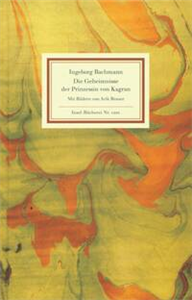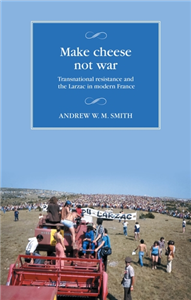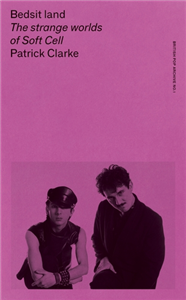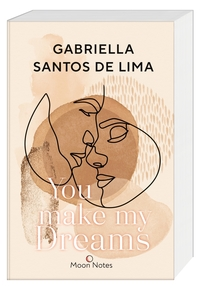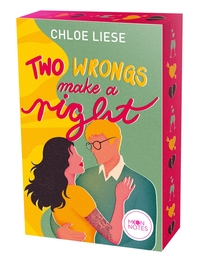Your Search Results
-
Canongate Books Ltd.
Canongate is an independent publisher: since 1973 we’ve worked to unearth and amplify the most vital, exciting voices we can find, wherever they come from, and we’ve published all kinds of books – thoughtful, upsetting, gripping, beatific, vulgar, chaste, unrepentant, life-changing . . . Along the way there have been landmarks of fiction – including Alasdair Gray’s masterpiece Lanark, and Yann Martel’s Life of Pi, the best-ever-selling Booker winner – and non-fiction too. We’ve published an American president and a Guantanamo detainee; we’ve campaigned for causes we believe in and fought court cases to get our authors heard. And twice we’ve won Publisher of the Year. We’re still fiercely independent, and we’re as committed to unorthodox and innovative publishing as ever. Please find the link to our latest Rights Guide with digitial content here: Rights Guide and our Canons Guide here: Canons Guide
View Rights Portal
-
Promoted Content
-
Promoted ContentSeptember 1999
Die Geheimnisse der Prinzessin von Kagran
by Ingeborg Bachmann, Arik Brauer
Ingeborg Bachmann (1926-1973) erzählt diese Liebesgeschichte in ihrem Roman Malina. Die Heldin des Romans liebt so vorbehaltlos, so ausschließlich und bedingungslos, »daß dem auf der anderen Seite nichts entsprechen kann. Für den Geliebten ist sie eine Episode in seinem Leben, für sie ist er der Transformator, der die Welt verändert, die Welt schön macht.« (Bachmann) Für ihn erfindet sie die Legende von der Vorherbestimmtheit ihrer Liebe, Sehnsuchtsbild und Utopie zugleich.Der Ausgabe beigegeben sind Bilder von Liebenden des österreichischen Maler Arik Brauer (geboren 1929).
-
 Trusted Partner
Trusted Partner
Does Movement Really Make Us Smart?
by Petra Jansen, Stefanie Richter
Media reports often praise movement as a cure-all. But apart from its undisputed positive effect on health, does movement really make us smarter? Consider a national football team, for example – are these excessively sports-driven players automatically the smartest people? Should we simply replace all school subjects with sports? The authors provide a detailed summary of the latest scientific findings on the influence of movement on cognitive ability. They describe the effects of movement, on old age, embodiment, emotion, school as well as other factors that influence cognition. Target Group: teachers, lecturers, psychologists, psychiatrists, neurologists, psychotherapists, movement therapists.
-
 Trusted Partner
Humanities & Social SciencesJune 2025
Trusted Partner
Humanities & Social SciencesJune 2025Living with water
Everyday encounters and liquid connections
by Charlotte Bates, Kate Moles
Living with water brings together sociologists, geographers, artists, writers and poets to explore the ways in which water binds, immerses and supports us. Drawing from international research on river crossings, boat dwelling, wild swimming, sea fishing, and drought impacts, and navigating urban waters, glacial lagoons, barrier reefs and disappearing tarns, the collection illuminates the ways that we live with and without water, and explores how we can think and write with water on land. Water offers a way of attending to emerging and enduring social and ecological concerns and making sense of them in lively and creative ways. By approaching Living with water from different disciplinary and methodological perspectives, and drawing on research from around the world, this collection opens up discussions that reinvigorate and renew previously landlocked debates. This book is relevant to United Nations Sustainable Development Goal 6, Clean water and sanitation
-
 Trusted Partner
Business, Economics & LawJune 2026
Trusted Partner
Business, Economics & LawJune 2026Water struggles as resistance to neoliberal capitalism
by Madelaine Moore
-
 Trusted Partner
Humanities & Social SciencesFebruary 2026
Trusted Partner
Humanities & Social SciencesFebruary 2026Make cheese not war
Transnational resistance and the Larzac in modern France
by Andrew W. M. Smith
In 1971, the French government announced a massive extension of its military base on the Larzac plateau in southern France. Land was to be expropriated from 107 farms around the small town of La Cavalerie. Limited resistance was expected, but what happened next exceeded all expectations. Local sheep farmers set up protest camps and occupied the land. They soon attracted an astonishing level of support, pioneering a form of regional radicalism with global implications. Drawing out the international dimensions of the protest, Make cheese not war explores a transnational resistance movement in the 1970s that challenged dominant visions of modernity and became a wellspring of radical alternatives. Exploring previously unconsulted archives in France and elsewhere, the book offers an in-depth analysis of the decade-long peasant movement and its aftermath. Repositioning the Larzac struggle within a wider network of French and international solidarities, from the US to the UK, Germany, Burkina Faso, New Caledonia and Japan, the book retraces political networks of pacifist activism, as well as environmental movements and anti-nuclear protest. It shows how this French peasant campaign became both a platform and a model for popular engagement.
-
 Trusted Partner
April 2023
Trusted Partner
April 2023The Battle for Water
In the century of drought
by Jürgen Rahmig
— Water as a reason for war and a political instrument of power — Unique overview of global water conflicts — Foreword by Wolfgang Ischinger Every year, droughts in African countries cause hundreds of thousands of deaths and much suffering. Europe also experienced drought in 2022's summer of record temperatures. Without water, there can be no life. More and more people are suffering from water shortages. Climate change is fuelling the distribution battles for water; violent conflicts over this precious resource are the order of the day. Whether the protests in Iraq, the war in Syria, in the Himalayas, the Nile conflict and in many other places, water is already a reason for war and is being misused as a political instrument of power. The construction of huge dams, the targeted closure of locks, river diversions, water and land grabbing bring wars over the "blue gold" with them. In a unique overview, journalist Jürgen Rahmig describes the struggle for water in the 21st century. Where do dangers lurk today; where will they be tomorrow, and how can we prevent wars over precious water?
-
 Trusted Partner
February 2016
Trusted Partner
February 2016Alea Aquarius 2. Die Farben des Meeres
by Tanya Stewner, Laura Maire, Tanya Stewner, Guido Frommelt, Alea Aquarius, Antje Seibel, Frank Gustavus, Claudia Carls
Seit die zwölfjährige Alea bei einem Sturm von Bord der Crucis fiel, weiß das Meermädchen endlich, wer sie ist und wo sie hingehört. Doch was geschah vor elf Jahren mit ihrer Mutter? Warum wirkt die Unterwasserwelt so ausgestorben? Und weshalb fühlt sie eine so starke Verbindung zu dem dreizehnjährigen Lennox, als hätten sie sich schon immer gekannt? Eine magische Botschaft aus dem Bauch eines Wales führt Alea und die Alpha Cru zu unglaublichen Antworten, die neue Fragen aufwerfen. Inklusive Alea Aquarius- Song, komponiert und gesungen von der Autorin.
-
 Trusted Partner
Humanities & Social SciencesApril 2022
Trusted Partner
Humanities & Social SciencesApril 2022Diplomacy and lobbying during Turkey’s Europeanisation
by Bilge Firat, Rod Rhodes
-
 Trusted Partner
Trusted Partner
-
 Trusted Partner
Literature & Literary StudiesApril 2018
Trusted Partner
Literature & Literary StudiesApril 2018Water and fire
The myth of the flood in Anglo-Saxon England
by Anke Bernau, Daniel Anlezark
Noah's Flood is one of the Bible's most popular stories, and flood myths survive in many cultures today. This book presents the first comprehensive examination of the incorporation of the Flood myth into the Anglo-Saxon imagination. Focusing on literary representations, it contributes to our understanding of how Christian Anglo-Saxons perceived their place in the cosmos. For them, history unfolded between the primeval Deluge and a future - perhaps imminent - flood of fire, which would destroy the world. This study reveals both an imaginative diversity and shared interpretations of the Flood myth. Anglo-Saxons saw the Flood as a climactic event in God's ongoing war with his more rebellious creatures, but they also perceived the mystery of redemption through baptism. Anlezark studies a range of texts against their historical background, and discusses shifting emphases in the way the Flood was interpreted for diverse audiences. The book concludes with a discussion of Beowulf, relating the epic poem's presentation of the Flood myth to that of other Anglo-Saxon texts.
-
 Trusted Partner
Technology, Engineering & AgricultureOctober 2025
Trusted Partner
Technology, Engineering & AgricultureOctober 2025Murky water
by Luca Calafati, Julie Froud, Colin Haslam, Sukhdev Johal, Karel Williams
-
 Trusted Partner
Trusted Partner
-
 Trusted Partner
Business, Economics & LawSeptember 2024
Trusted Partner
Business, Economics & LawSeptember 2024Global solidarities against water grabbing
by Caitlin Schroering
-
 Trusted Partner
Trusted Partner
-
 Trusted Partner
Biography & True StoriesSeptember 2024
Trusted Partner
Biography & True StoriesSeptember 2024Bedsit land
The strange worlds of Soft Cell
by Patrick Clarke
A rich and revealing examination of the legendary pop duo Soft Cell. Soft Cell are not your average pop band. Marc Almond and Dave Ball may be best known for the string of hits they released in 1981, but the powerful first phase of their collaboration embraced a staggering array of sounds, influences and innovations that would change the face of music to come. In Bedsit land, Patrick Clarke plunges into the archives and interviews more than sixty contributors, including the band members themselves, to follow Soft Cell through the many strange and sprawling worlds that shaped their extraordinary career. They lead him from the faded camp glamour of the British seaside to the dizzying thrills of the New York club scene. From transgressive student performance art to the sleaze and squalor of pre-gentrified Soho. From the glitz of British showbiz to the drug-addled chaos of post-Franco Spain. He emerges on the other side with the most in-depth, innovative and entertaining account of the duo ever written.
-
 Trusted Partner
Trusted Partner
Ich traf meinen Mörder
Ein Journalist und die dunklen Seiten der Macht
by Dündar, Can / Übersetzt von Adatepe, Sabine
Ein Brief erreicht den Exil-Journalisten Can Dündar. Der Absender: Serkan Kurtuluş, ein türkischer Häftling in einem Gefängnis in Buenos Aires. Er gibt sich als jemand zu erkennen, der den Auftrag erhielt, ihn zu ermorden – und verspricht ihm brisante Informationen. Der Hintergrund: Mit einem Artikel über geheime Waffenlieferungen der Türkei an eine verbotene syrische Islamistenorganisation machte sich Can Dündar Staatspräsident Erdoğan zum Feind. Er wurde zu 27 Jahren Haft verurteilt – und es wurde ein Attentat auf ihn verübt, direkt vor dem Gerichtsgebäude. Dündar besucht den Mann, der ihn ermorden sollte, im Gefängnis. Dieser wiederum fürchtet wegen drohender Abschiebung in die Türkei jetzt selbst um sein Leben. Durch ihn und bei weiteren Recherchen stößt er auf ein Netzwerk von geheimen Deals zwischen demokratischen und autokratischen Regierungen und deren Verbindungen zum organisierten Verbrechen und zu Terrororganisationen. Eine unglaubliche Geschichte, spannend wie ein Thriller, aber leider real – ein erschreckender Blick in die Abgründe politischen Machtmissbrauchs.
-
 Trusted Partner
June 2022
Trusted Partner
June 2022You make my Dreams
by Gabriella Santos de Lima, Moon Notes
In "You Make My Dreams" von Gabriella Santos de Lima folgen wir der 19-jährigen Audrey, die sich nichts sehnlicher wünscht, als Schauspielerin zu werden. Um ihren Traum zu verwirklichen, zieht sie von Florida nach New York, um an der renommierten Juilliard School of Performing Arts zu studieren, trotz ihrer Abneigung gegen die Stadt, die durch die Trennung von ihrer Mutter, einer Frau, die ihre Familie für ihre Karriere verlassen hat, verstärkt wird. In New York fühlt sich Audrey verloren und allein, bis sie durch ein anonymes Mailprogramm namens NewInYork Bennett29 kennenlernt. Trotz eines zunächst fast abweisenden Austauschs entwickelt sich schnell eine tiefe und persönliche Verbindung zwischen ihnen, die Audrey dazu bringt, ihre Wächter herunterzulassen und zu glauben, dass sie vielleicht doch nicht die Einzige mit Geheimnissen ist. Während die Beziehung zwischen Audrey und Bennett29 wächst, wird Audrey mit den Herausforderungen konfrontiert, die sowohl ihr Studium als auch das komplizierte Verhältnis zu ihrer Mutter und ihrer neuen Umgebung mit sich bringen. Der anonyme Austausch wird zu einem sicheren Hafen, in dem sie sich gegenseitig unterstützen und ermutigen, aber auch Audrey dazu bringen, sich ihren Ängsten und der Realität ihres Lebens in New York zu stellen. Das Mysterium um Bennetts wahre Identität und Audreys Kampf, ihre Träume zu verfolgen, während sie versucht, ihre Vergangenheit zu bewältigen und zu verstehen, was Familie und Liebe wirklich bedeuten, treibt die Handlung voran. "You Make My Dreams" ist eine Geschichte über das Erwachsenwerden, die Suche nach Identität und die Macht der Liebe und Freundschaft, die uns hilft, unsere tiefsten Träume zu verwirklichen. Entdecke die Welt der Schauspielkunst an der renommierten Juilliard School durch die Augen der jungen, ambitionierten Audrey. Eine Geschichte über Träume, Entschlossenheit und die unerwarteten Wendungen des Lebens. Tauche ein in die komplexe Dynamik zwischen persönlichen Ambitionen und familiären Bindungen. Erlebe eine moderne Liebesgeschichte, die sich in der Anonymität des Internets entfaltet. Begleite Audrey auf ihrer Reise der Selbstfindung, Konfrontation mit der Vergangenheit und dem Streben nach Vergebung. Für Fans von emotionalen Geschichten über junge Menschen an der Schwelle zum Erwachsenwerden. Ein Roman über die Kraft der Freundschaft, die Bedeutung von Vertrauen und die Suche nach der eigenen Identität. Faszinierendes Setting in New York City, das die Herausforderungen und Chancen des Großstadtlebens einfängt. Ein packendes Leseerlebnis, das zeigt, wie wichtig es ist, für seine Träume zu kämpfen und sich selbst treu zu bleiben.
-
 Trusted Partner
Trusted Partner
Die rissige Brücke über den Bosporus
Ein Jahr Türkische Republik und der Westen
by Dündar, Can / Übersetzung: Adatepe, Sabine
-
 Trusted Partner
June 2024
Trusted Partner
June 2024Two Wrongs make a Right
by Chloe Liese, Moon Notes
Mit schönem Farbschnitt in der Erstauflage – Lieferung je nach Verfügbarkeit Fake-Date oder große Liebe – wer weiß das schon so genau? Jamie Westenberg und Bea Wilmot haben rein gar nichts gemeinsam außer den traumatischen Erinnerungen an ihre erste Begegnung. Doch als die Menschen, die ihnen am nächsten stehen, versuchen Amor zu spielen und sie zu einem Date überreden, wird den beiden klar, dass sie noch eine Gemeinsamkeit haben: ein unbestreitbares Bedürfnis nach Rache. Bald steht ihr Plan fest: Sie wollen ein falsches Date vortäuschen und ihre Freunde davon überzeugen, dass sie total verliebt sind. Es folgt ein spektakulär inszeniertes Schlussmachen, um dem Verkupplungswahn ein für alle Mal ein Ende zu setzen. Jamie und Bea legen den Auftritt ihres Lebens hin – doch je länger sie die Liebenden spielen, desto einfacher wird es. Lovestory zum Mitfiebern voll spannender Kontraste: „Two Wrongs make a Right“. Autorin Chloe Liese ließ sich von Shakespeares romantischer Komödie „Viel Lärm um nichts“ inspirieren – und schrieb eine sehr moderne, absolut hinreißende Story. Für New Adults ab 16 Jahren: sexy Liebesgeschichte um verbotene Gefühle und vermeintliche Gegensätze, die zu Verbündeten werden. Dieses Buch bringt dich mit viel Herzenswärme und Humor gleichzeitig zum Lachen und zum Weinen, denn: „Every way you were my opposite only made me want you more“. Eine neue BookTok-Entdeckung für alle Fans der Liebesromane von Ali Hazelwood und Helen Hoang. Genial ausgestattet in der Erstauflage: Softcover mit Klappen, trendig illustriertem Buchschnitt und coolem Lesezeichen zum Abtrennen.






